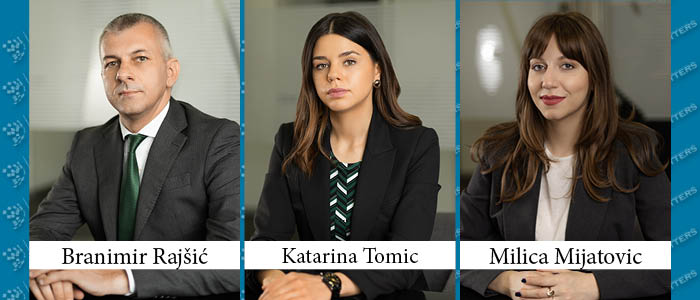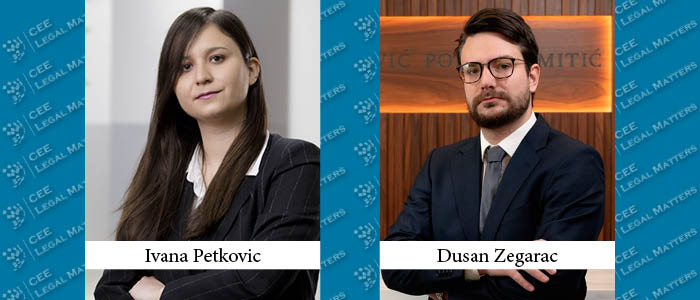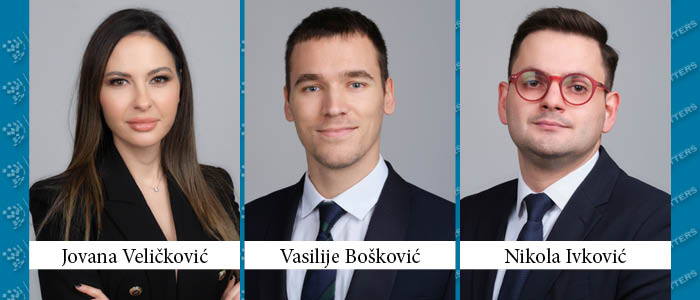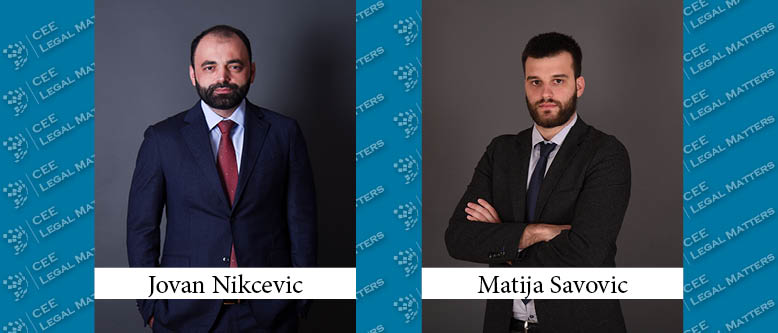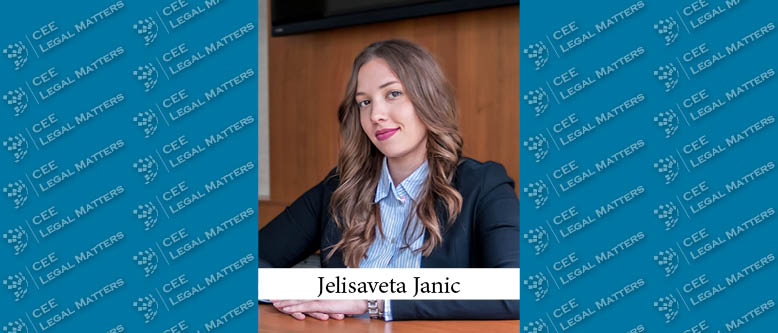The Government of the Republic of Serbia adopted amendments and supplements to the Excise Law (Law) on 6 September 2023.
To Know What the Future Holds – A Closer Look into Duration of Court and Arbitral Proceedings
It is well established in today's world that the resolution of civil disputes is a crucial aspect of any legal system both by ensuring justice effectively and enabling continual business relationships to thrive unhindered by excessively long-lasting court proceedings.
The Government of the Republic of Serbia Adopted the Personal Data Protection Strategy
On August 25, 2023, the Government of the Republic of Serbia adopted the Personal Data Protection Strategy for the period 2023-2030 (“Strategy”).
Zivkovic Samardzic Successful for B92 Before European Court of Human Rights
Zivkovic Samardzic has successfully represented the B92 media company before the European Court of Human Rights in a dispute against Serbia.
Conclusion of Contract by Using Emoji – How Informal the Informal Contracts can be?
Meeting of minds of the contracting parties undeniably represents the very foundation of the contract law, hence both theory and practice agree that there is no agreement without it. However, when it comes to the manner of expressing such will, the situation is somewhat different.
Serbia Adopts the Personal Data Protection Strategy for 2023 – 2030: Fresh and Bold Goals for the Times to Come
In a critical move to face the rapidly evolving technological novelties and their immanent implications on the protection of personal data and the business environment in general, the Serbian Government adopted the Personal Data Protection Strategy 2023 – 2030 (the “Strategy”) late this August.
Class Action in the USA and Its Prospects in Serbia – Part II
In the previous article, we became familiar with the class action. This legal institute originated from Anglo-Saxon law, and many countries use it, primarily the USA. In this article, we will consider the introduction of a similar institute into the legal system of the Republic of Serbia from the perspective of de lege ferenda.
Chapter 2 – Keeping a Promise – The First-Instance Commercial Offence Proceeding
As we promised a few weeks ago when we discussed all the interesting aspects of commercial offences as an integral part of Serbian penal law, we shall now take a closer look at the first-instance proceeding and some of the most important segments of domestic and foreign legal entities, as well as their responsible persons, should keep in mind in case they are subjected to a commercial offence proceeding.
Serbia: Is Serbia Keeping Up with Developments in the Digital Markets Sectors from an Antitrust Perspective?
The expansion of digital markets is undeniable, and the need for special regulations in these areas is clearly proved by the EU in rendering the Digital Services Act and Digital Markets Act. The mentioned regulations build on the EU Electronic Commerce Directive to address new challenges online.
Dealing with Fixed Price Adjustments in Infrastructure Projects – A Serbian Legal Perspective
In recent years, significant global events and unforeseen circumstances have had a profound impact on, among others, infrastructure projects. These events, whether global conflicts, health crises, or other significant occurrences, have triggered price changes in such projects. As a result, provisions of the Serbian Law on Obligations regarding claims for changes in price have gained prominence.
Trends on Serbian Banking and Finance Market – What to Expect?
Despite global financial downturns, Serbia’s banking and finance market has exhibited remarkable stability and consistent growth. It has experienced significant advancements driven by economic expansion, technological progress, and regulatory reforms aiming to enhance stability, transparency, consumer protection, and efficiency.
What Do the Changes to the Law on Planning and Construction Actually Bring?
The Government of the Republic of Serbia recently took a significant step in redefining the rules regulating construction activities in Serbia by proposing amendments to the Law on Planning and Construction. If adopted, this will introduce significant changes and breakthroughs for both individuals and the industry as a whole.
Rethinking the Role and Power of Class Actions in Serbia
In recent years, the rise of mass lawsuits has placed a significant strain on Serbian courts. The most notable mass lawsuits, which first emerged in the mid-2000s, encompass a wide range of issues, from shift and night work disputes to overcharged fees for children’s daycare and discrimination against war veterans. Recent prominent cases have involved the nullity of loan agreement provisions on application-processing costs and auxiliary school staff’s entitlement to compensation for warm meals and holiday allowances. The rise of mass lawsuits carries profound legal and economic implications, sparking renewed initiatives for class action in Serbia.
Know Your Lawyer: Mark Harrison of Harrisons
An in-depth look at Mark Harrison of Harrisons covering his career path, education, and top projects as a lawyer as well as a few insights about his as a manager at work and as a person outside the office.
The Barbenheimer Phenomenon
This year, the internet has been captivated by a sensation known as “Barbenheimer,” a phenomenon that emerged just before the blockbuster film releases of “Barbie” and “Oppenheimer.” Having previously explored the Barbie intellectual property (IP) landscape, it’s astonishing to find yet another connection between these two cinematic sensations that stand at opposite ends of the IP spectrum.
Amendments to the Law on Planning and Construction – Abolishment of Paid Conversion, Focus on Energy Efficiency and Green Construction
Amendments and supplements to the Law on Planning and Construction (“Law”) were published in the Official Gazette no. 62/2023 from 27 July 2023 and entered into force on 4 August 2023, whereas certain provisions of the Law will enter into force in 2024 and 2026, respectively.
Clifford Chance Advises on Refinancing and Recapitalization of KKCG Group's Technology Pillar
Clifford Chance has advised KKCG Group's Technology pillar on the complete refinancing of its existing bank indebtedness and the further recapitalization of its members, including those in Bulgaria, North Macedonia, Poland, and Serbia.
Tax Incentives on Reimbursement of Engaged Individuals
The Republic of Serbia applies different taxes to reimbursement payable to engaged individuals depending on their engagement type. Those engaged via employment agreement, are subject to salary tax and those engaged via service agreement are subject to tax on other income. Those engaged via temporary and periodical employment agreements are subject to either salary tax or tax on other income while those engaged on the basis of supplementary work are only subject to tax on other income.

